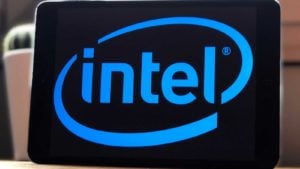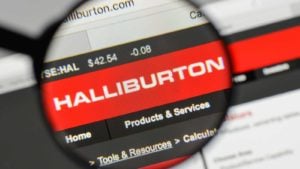June
30, 2021
9 min read
This story originally appeared on InvestorPlace
InvestorPlace – Stock Market News, Stock Advice & Trading Tips
When looking for stocks to buy, why not take some notes from politicians on Capitol Hill? Elected officials in Washington, D.C. are free to buy and sell stocks provided they follow strict disclosure rules and act in an ethical manner. The STOCK Act of 2012 forbids Congressional insider trading on the part of members of the House of Representatives and Senate, which is defined as the use of nonpublic information for one’s financial benefit.
However, the law does not prevent members of Congress from buying and selling shares of companies affected by the legislation they write and the laws they vote in favor of. For this reason, critics say the STOCK Act does not go far enough.
However, members of Congress are required to disclose holdings in their stock portfolios, providing a glimpse into how lawmakers view what is happening on Wall Street. In this article, we take a look at seven of the most widely held and frequently traded stocks among U.S. Senators, based on data provided from the website “Senate Trading.”
- Intel (NASDAQ:INTC)
- The Trade Desk (NASDAQ:TTD)
- Peloton (NASDAQ:PTON)
- Berkshire Hathaway (NYSE:BRK-B)
- Wells Fargo (NYSE:WFC)
- Apple (NASDAQ:AAPL)
- Halliburton (NYSE:HAL)
Stocks to Buy: Intel (INTC)

Source: Kate Krav-Rude / Shutterstock.com
Some of the most recent and frequent trading made by various senators has been in Silicon Valley-based semiconductor company Intel. While Intel no longer dominates the semiconductor space like it once did, the company has seen its share price get a boost this year as the world grapples with a shortage of microchips and semiconductors used in everything from cars to computers. Year-to-date, INTC stock is up 12% to $55.65 a share.
Intel continues to struggle financially. The chipmaker continues to lose market share to competitors and customers who are designing their own microchips. The company’s most recent quarterly results showed that Intel’s Data Center Group generated first-quarter sales of $5.6 billion, down 20% from a year earlier. Intel’s gross margin, the percentage of revenue remaining after the cost of production, was 55.2%, down five percentage points from the same period of 2020.
On the positive side, Intel has announced that it plans to resume manufacturing microchips again, as well as designing them, promising to spend $20 billion to develop new U.S.-based foundries.
The Trade Desk (TTD)

Source: shutterstock.com
There was plenty of buying and selling of digital advertising company The Trade Desk in the lead-up to the company’s 10-for-1 stock split that was executed on June 16. It was the first split of TTD stock since the company went public in 2016, and it brought the share price down from nearly $600 to $59.02.
Since the split, the stock has jumped 29% in short order, growing to nearly $79 as of June 30. The rise has come as retail investors grab shares now that they are more affordable. Additionally, there are expectations that online advertising will recover and boom coming out of the pandemic in this year’s second half.
The Trade Desk has proven to be a strong performer and a reliable growth stock. Since 2017, The Trade Desk’s revenue has increased fourfold, and its net income has grown an incredible 12-fold. Even last year, at the height of the pandemic, The Trade Desk managed to grow its revenue 26% on an annualized basis, driven by advertisements from retailers targeting people shopping online and political advertisements during the U.S. elections last fall.
Stocks to Buy: Peloton (PTON)

Source: JHVEPhoto / Shutterstock.com
Another actively traded stock among senators is exercise-equipment-maker Peloton. The New York City-based company that makes exercise bikes and treadmills saw its share price skyrocket last year as gyms and fitness clubs were forced to close and people began exercising at home.
At $125.09 per share, PTON stock is up nearly 118% in the last 52 weeks. However, year-to-date, the share price is down about 18%. The economic reopening has investors betting that people will soon return to their local gym, and Peloton will be unable to maintain its sales growth.
Another black mark that has hurt PTON shares is a massive recall of the company’s Tread+ treadmill after it was found to have injured nearly 30 children and killed one child. After weeks of denials and delays (and bad PR), Peloton announced that it will recall 125,000 of the treadmills at a cost to its bottom line of $165 million. Peloton said the $165 million includes $105 million in missed sales and $50 million that will go to paying refunds to people who want to return the recalled treadmills, which cost $4,200 each to purchase.
The negative publicity surrounding the treadmill injuries and subsequent recall appeared to prompt heavy trading of the stock among U.S. senators this spring.
Berkshire Hathaway (BRK-B)

Source: Jonathan Weiss / Shutterstock.com
Famed investor Warren Buffett is often critical of elected officials in Washington, D.C., criticizing everything from the deficit and tax policies to the salaries and office budgets of senators and representatives. However, despite his criticisms, senators seem to have no qualms about buying shares of Buffett’s holding company Berkshire Hathaway. The more affordable Class-B shares of Berkshire Hathaway are among the most widely held by U.S. senators. At $278 each, BRK-B shares are up 20% year-to-date.
Perhaps senators like the diversification they get with BRK-B stock. Berkshire Hathaway does after all own a multitude of businesses ranging from railroads to insurance companies, and even the Dairy Queen restaurant chain. Or perhaps they admire the massive and heavily diversified stock portfolio that Berkshire Hathaway owns. The company is, after all, one of the largest shareholders of Apple, Bank of America (NYSE:BAC) and Coca-Cola Co (NYSE:KO).
And it’s hard to argue with Buffett’s track record. He has, after all, beaten the returns of the S&P 500 index in 12 of the past 20 years, which is better than most fund managers on Wall Street.
Stocks to Buy: Wells Fargo (WFC)

Source: Ken Wolter / Shutterstock.com
Wells Fargo has been one of the best performing bank stocks this year, up 50% year-to-date at $45.13 a share. And senators in Washington, D.C. certainly seem to have taken notice. Seen largely as a turnaround story after enduring a painful “fake accounts” scandal that cost the bank $3 billion in legal settlements, Wells Fargo has risen this year with the broader banking sector. Investors like the environment for banks now that consumer spending is increasing and interest rates are expected to rise in the medium term.
Wells Fargo got a recent lift after the U.S. Federal Reserve announced that America’s largest banks easily passed its latest stress test and are now free to once again distribute capital to shareholders in the form of dividend payments as well as stock buybacks. Wall Street estimates indicate that the six biggest U.S. banks, including Wells Fargo, could return more than $140 billion to shareholders beginning after stock markets closed on June 28, and payouts are expected to be the largest ever. Investors understandably cheered this news, sending bank stocks higher.
Apple (AAPL)

Source: WeDesing / Shutterstock.com
Consumer-technology giant Apple is one of the most widely held stocks in the world and has the biggest weighting on the Dow Jones Industrial Average. AAPL stock is also one of only two stocks on the Dow, along with Microsoft (NASDAQ:MSFT), that enjoys a $2 trillion market capitalization. Given its heft and influence, it should come as no surprise that the iPhone maker is a favorite holding of American senators.
And yet, despite its pedigree and influence, Apple stock has been a laggard this year when compared to other stocks. After a strong performance in 2020 and a four-for-one stock split last August, AAPL stock is up only a slight 3% year-to-date, and the share price currently sits at $136.62. The tepid growth comes despite the company issuing a slew of new products, including its 5G wireless-enabled iPhone 12 that analysts see ushering in a “super cycle” of sales for the company.
Most industry observers chalk up the stunted growth of Apple’s stock price this year to investors focusing more on cyclical stocks that will do well as the economy surges ahead. But it likely won’t be long before AAPL stock experiences a new breakout.
Stocks to Buy: Halliburton (HAL)

Source: Casimiro PT / Shutterstock.com
Now for a blast from the past. Remember Halliburton? The Duncan, Oklahoma-based oil field services company made headlines frequently during the administration of former President George W. Bush for its close ties to then-Vice President Dick Cheney, and for its ability to land lucrative U.S. government contracts in the Middle East, notably Iraq. The company has been prosecuted by the U.S. Justice Department in the past for paying bribes to government officials in foreign countries to secure contracts.
In 2007, Halliburton sold its KBR division, the contracting, engineering and construction unit that had caused much of the controversy. Today, Halliburton is primarily focused on servicing oil fields in the U.S. and Middle East.
And while it no longer attracts the same amount of media interest that it once did, Halliburton remains a popular stock among U.S. senators. With oil prices on the rebound and the energy sector recovering from the pandemic, HAL stock has increased 22% year-to-date and now trades at $23.08 a share. In the past year, the stock price is up 86%.
On the date of publication, Joel Baglole held long positions in AAPL and MSFT. The opinions expressed in this article are those of the writer, subject to the InvestorPlace.com Publishing Guidelines.
Joel Baglole has been a business journalist for 20 years. He spent five years as a staff reporter at The Wall Street Journal, and has also written for The Washington Post and Toronto Star newspapers, as well as financial websites such as The Motley Fool and Investopedia.
More From InvestorPlace
The post 7 Stocks to Buy If You Want to Follow Our U.S. Senators appeared first on InvestorPlace.







